The festive season is upon us, which also means cheating season has arrived. Studies have found that more people step out on their partners during December than at any other time of the year. 85% of people who took part in one survey said the holiday season makes them feel more passionate and excited. They’re also more likely to be out and about, which in turn leads to giving in to the temptation to have an affair.
One man shared how his girlfriend of two years recently admitted to cheating on him with a random guy she met at a bar. As if that wasn’t bad enough, the woman said she only did it because she “wanted to see if she still had it.” The man refused to accept it as a valid excuse. But now his ex and their mutual friends are pressuring him to give the relationship one more chance, and he’s not sure if he should. Bored Panda reached out to psychotherapist and best-selling author Anna Mathur about how to manage misplaced guilt.
There are several reasons someone might cheat on their partner

Image credits: Getty Images / Unsplash (not the actual photo)
When this guy’s girlfriend decided to hook up with someone else to see if she still “had it,” he immediately showed her the door


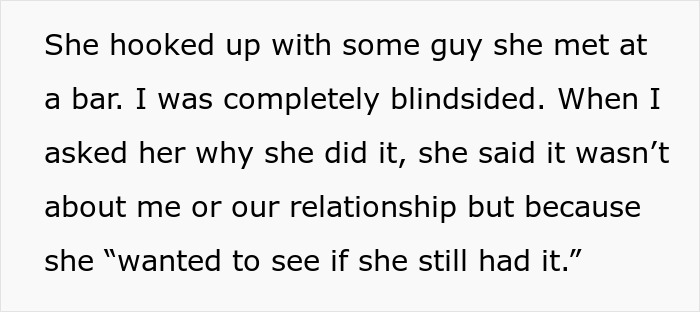
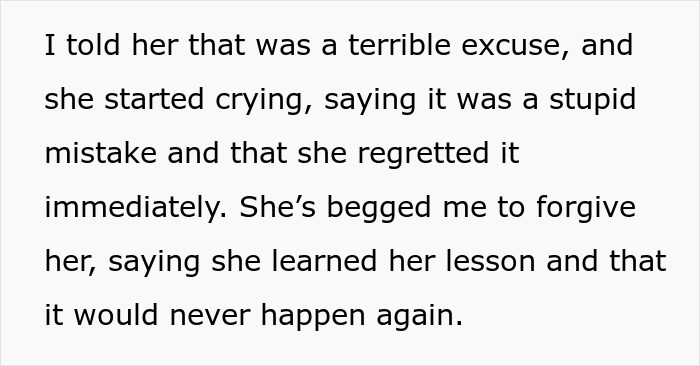

Image credits: RDNE Stock project / Pexels (not the actual photo)
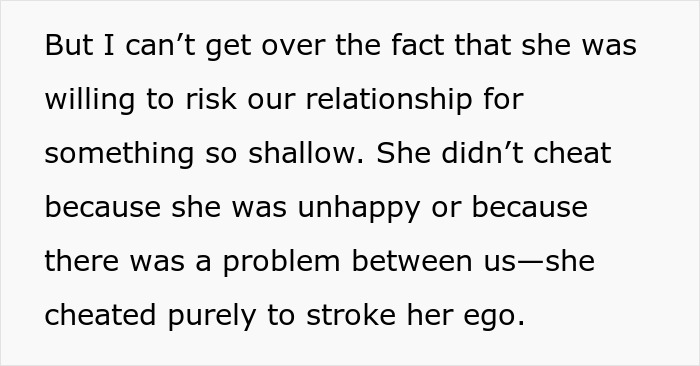
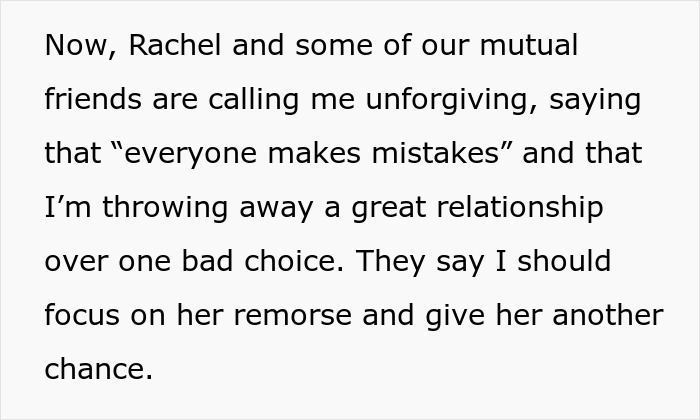

Image credits: Big-Classic-7657

Image credits: Victoria Romulo / Unsplash (not the actual photo)
The guy feels a tinge of guilt for sticking to his boundaries, and an expert explains why
Bored Panda asked psychotherapist and best-selling author Anna Mathur to unpack what guilt is, why we feel it, and how to deal with it. She began by telling us that guilt is a prompt that we’ve behaved or acted in a way that doesn’t align with our values somehow.
“Misplaced guilt is the feeling of guilt that comes when you’ve not actually done anything wrong,” explains Mathur. “This is often rooted in people-pleasing or perfectionism – such as holding a healthy boundary, and feeling guilty because someone is finding it hard to accept.” As in the case of the guy who is being pressured to take back his cheating girlfriend.
The expert advises people to acknowledge and name the guilt. For example, if you feel bad for upsetting a friend, “Consider whether you did anything wrong that you need to apologise or take responsibility for. ‘I was really blunt with her because I was tired, so I should probably explain that I wasn’t actually annoyed with her.’ Once you have acted upon that step, you can let the guilt go,” Mathur told Bored Panda, stressing that guilt is there to prompt you to act or take responsibility where needed, not make you feel like a bad person.

Image credits: simonapilolla / Freepik (not the actual photo)
There are pros and cons to forgiving a cheater
When researchers examined data collected over a 50-year period, they found that roughly 1 in 5 people cheat. And psychologists say there are several reasons someone might decide to be unfaithful. The main ones being anger, low self-esteem, lack of love, low commitment, need for variety, neglect, sexual desire, and situation or circumstance. In the case of the guy left blindsided, it appears his girlfriend’s low self-esteem played a part.
People who have low self-worth might choose to seek validation outside of their relationship because it makes them feel more wanted – and better about themselves. But as Brides.com reports, “while taking the unfaithful route might give them a temporary boost of self-confidence, in the long-term, cheating exacerbates low feelings about oneself.” So it’s a vicious cycle.
Whether you stay with a cheating partner or end the relationship, you’ll still have to decide if you’re willing to forgive them or not. Experts say there are pros and cons to forgiving a cheater. On the upside, forgiveness frees you from resentment and pain, working things out might bring you closer together, and the process of forgiveness can help couples reconnect with each other.
“Choosing forgiveness can lead to personal growth and introspection. It allows you to confront your emotions, work through them, and develop a deeper understanding of yourself,” notes Marriage.com. “Then again, the periods accompanying a cheating incident will also help you understand your triggers and identify loopholes in your relationship.”
The cons to forgiving a cheater include the fact they may cheat again, you may constantly be reminded of the hurt, and not addressing the root cause could enable their bad behavior. In the end, only you can decide whether it’s worth the risk.
“You dodged a nuke, bro”: the internet rallied behind the guy, reassuring him that he did the right thing




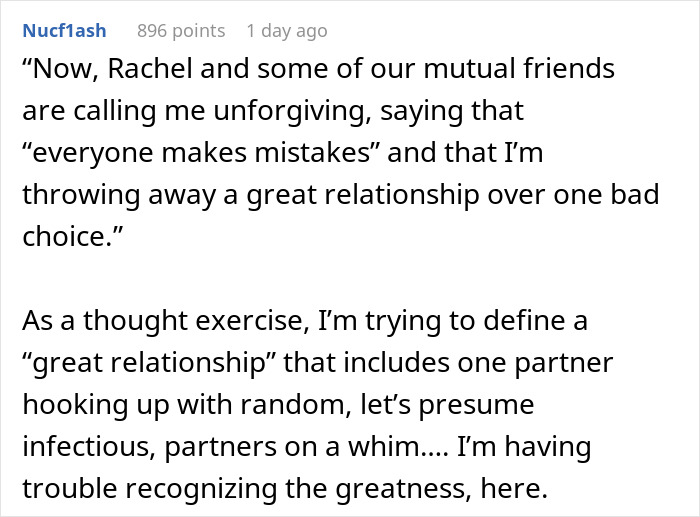
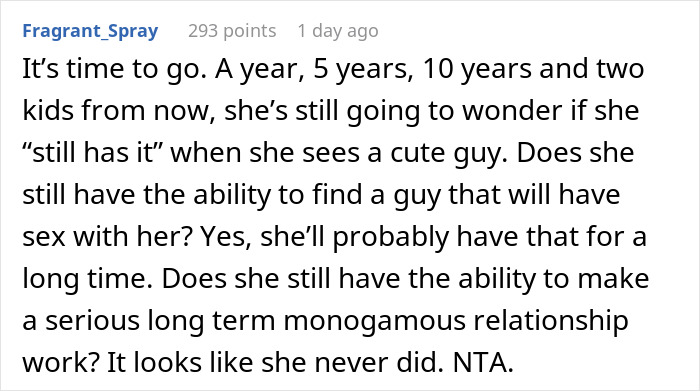





















 English (US) ·
English (US) ·